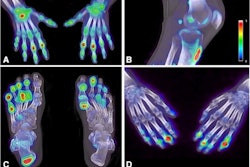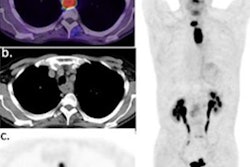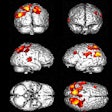Wednesday, November 30 | 9:30 a.m.-10:30 a.m. | W3-SSNMMI06-2 | Room S502
Gallium-68 (Ga-68) prostate-specific membrane antigen (PSMA)-11 PET/CT and PET/MRI resulted in patient management changes in most clinical trial participants with prostate cancer, according to research presented in this session.Researchers at the Mayo Clinic in Rochester led by presenter Dr. Hiroaki Takahashi, PhD, conducted a clinical trial in 243 patients referred to their center for either initial staging (untreated high-risk prostate cancer) or for restaging (biochemically recurrent disease). Referring providers were asked to complete a survey specifying therapy that was planned before and after receiving the results of PSMA-PET/CT or PET/MRI scans. Patient charts were reviewed to identify the imaging results and any previous imaging, including choline-11 (C-11) PET/CT, performed within one year prior to the PSMA scan.
PSMA-PET was performed for biochemically recurrent prostate cancer in 221 patients and for untreated high-risk disease in 22 patients, The modality changed management for 76.5% (169/221) of the patients with biochemically recurrent prostate cancer and 45.5% (10/22) of the patients with untreated high-risk disease. Overall, PSMA-PET changed management in 73.7% (179/243) of patients.
In addition, the study showed that among 123 patients who underwent prior C-11 PET/CT, PSMA-PET resulted in change of management in 71.5% (88/123) of patients. PSMA-PET also showed significantly higher lesion detection in lymph nodes, bones, and other sites of metastatic disease.
"PSMA PET/CT and PSMA PET/MRI have a significant impact on guiding the proper management of the majority of prostate cancer patients in multiple scenarios regardless of the availability of other advanced imaging," Takahashi noted.
Check out this Wednesday talk to learn more.





















